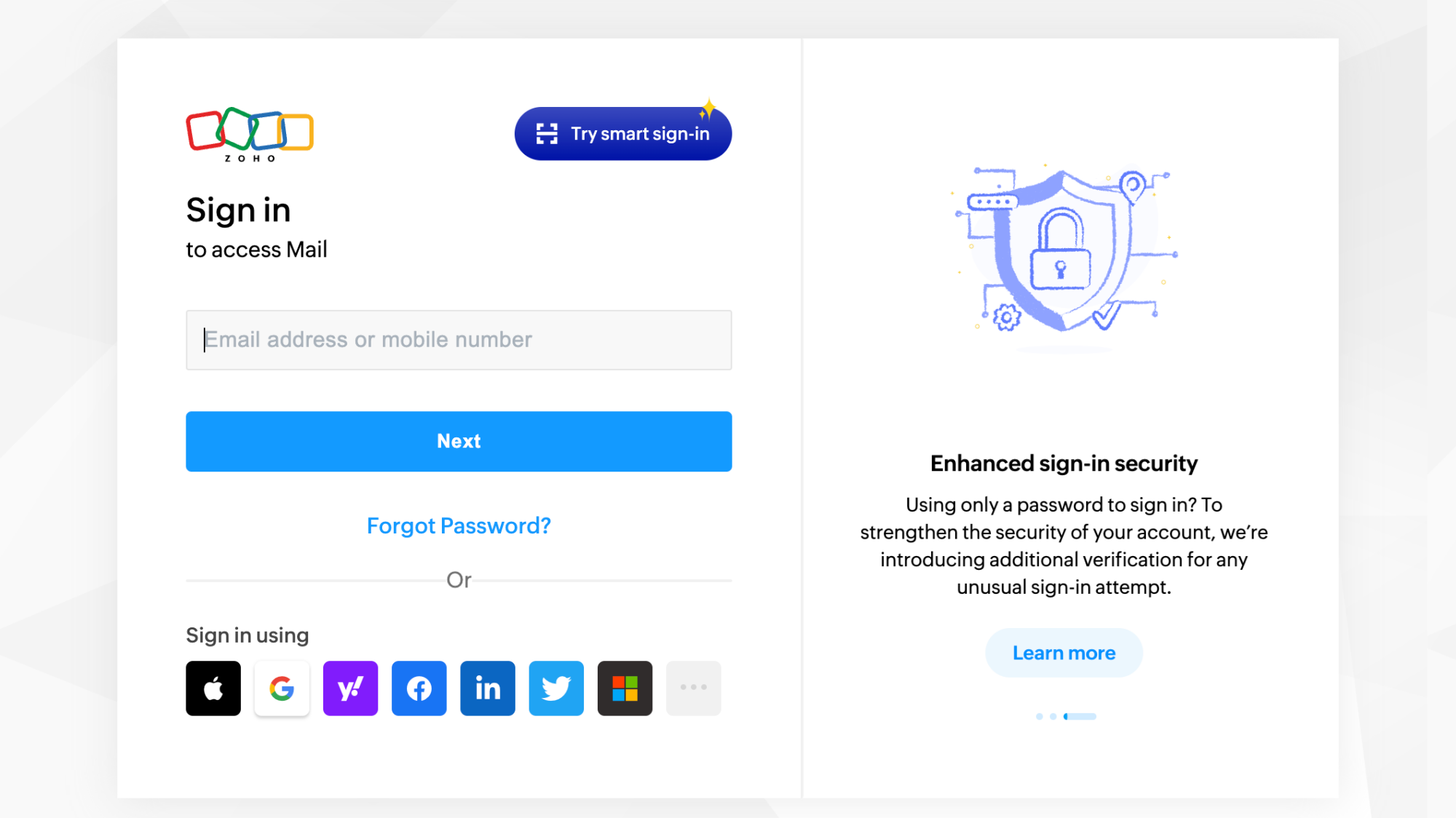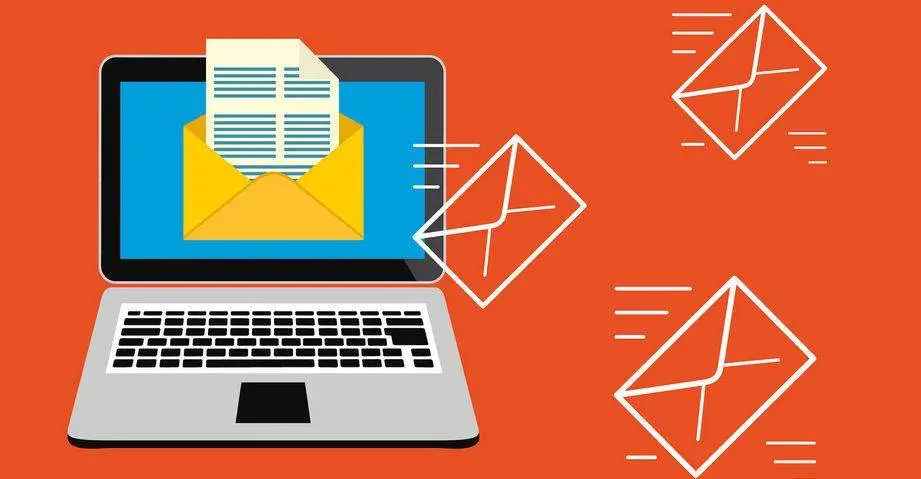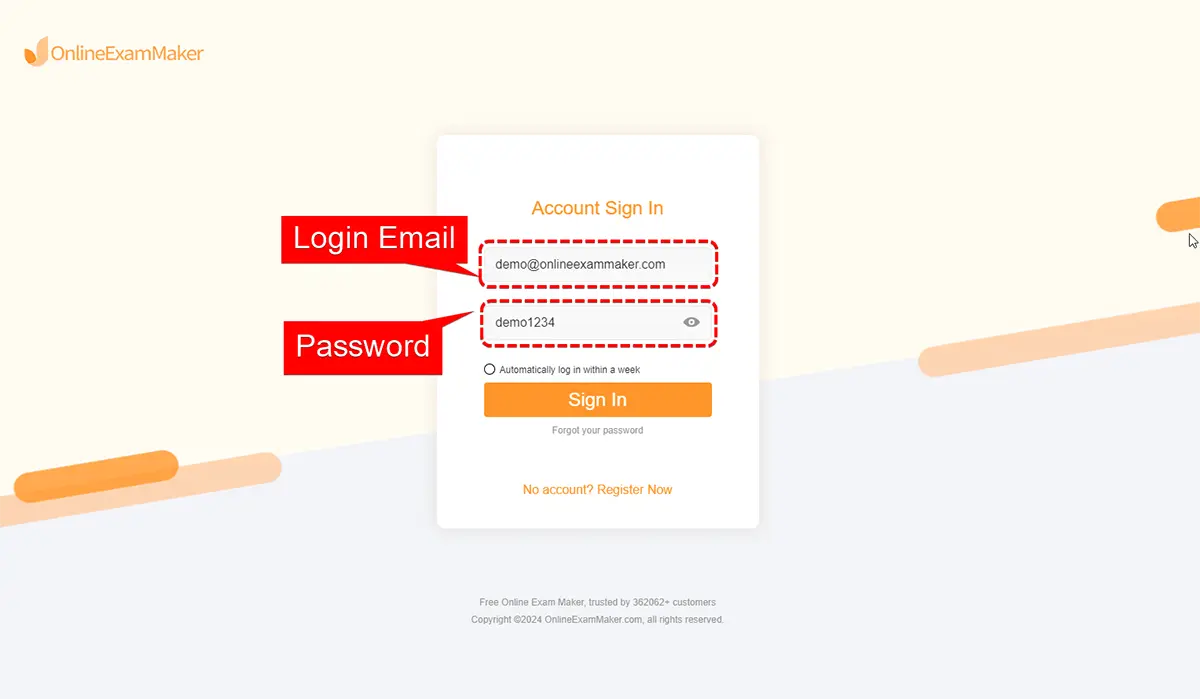Anonymous Email Services: Browse the Web Without Giving Away Your Identity
In today's digital age, maintaining privacy and online security is becoming increasingly difficult. Every time you subscribe to a new service, enter a website, or even simply browse the web, you leave digital footprints that can be traced back to you. One of the most basic yet crucial steps to safeguarding your identity is using anonymous email services.
These services allow you to interact with the internet without revealing your personal information. They provide a layer of protection by keeping your real-world identity separated from your online activities. And that's not all; anonymous email services have numerous advantages, including minimizing spam and protecting you from data breaches.
In this comprehensive guide, we'll delve into the world of anonymous email services, exploring what they are, how they work, and most importantly, which ones you should trust to keep your digital identity safe. We'll also bust some common myths about anonymity and provide actionable tips to further enhance your online privacy. Whether you're a tech-savvy individual who values privacy above all else or just someone looking to browse the web without undue interference, this blog post is for you!
So, buckle up and get ready for a transformative journey into the world of anonymous emailing.
Why Would Someone Need Anonymous Email Services?
An anonymous email service is a platform that does not require personal information, such as your name or residential address, to create an account. This means you can send and receive emails without revealing your true identity.
Such services are invaluable for individuals who value their privacy and wish to avoid leaving digital footprints everywhere they browse the web. It's no secret that emails can inadvertently leak personal information, which can be exploited by malicious actors or simply used by overreaching corporations for targeted advertising.
But there are many other reasons why someone might seek the assistance of anonymous email services, including:
-
Anonymity during Testing: Developers often need to test new products or sign up for services while avoiding personalized communication or spam. An anonymous email account helps keep their primary email address free from unnecessary distractions.
-
Safe Communication: For vulnerable communities, such as domestic violence victims or whistleblowers, anonymous email services can provide a safe and secure means of communication without fear of retribution or identification.
-
Avoiding Censorship: In some countries, free speech is restricted, and anonymous email services can provide a loophole to circumvent censorship and communicate freely.
-
Privacy for Online Dating: Dating apps and services are a lucrative source of personal data. Users interested in exploring potential relationships without exposing their identities might benefit from anonymous email setups.
-
Managing Online Accounts: With every online account, there's a risk of data breaches and unauthorized access. Using anonymous email addresses for lesser-used services can minimize the potential fallout of compromised credentials.
Now, let's delve deeper into the mechanics of anonymous email services and how they manage to keep your identity under wraps.
Understanding the Mechanics of Anonymous Email Services
Anonymous email services employ various techniques to protect your identity and keep your information private. Understanding these techniques is essential to grasp the level of security they provide and how best to employ them.
-
Disregarding Personal Information: A standard email service provider will require you to provide personal details such as your name, birth date, and contact information. This information is often stored in their databases, which leaves you vulnerable to data breaches and unauthorized access. In contrast, anonymous email services often forgo this information, limiting the data they collect and thus reducing your digital footprint.
-
Providing Anonymized Accounts: Some services offer quasi-anonymous accounts, meaning you can sign up without submitting personal details, but the account's username cannot be linked to you personally.
-
Use of Tor and VPNs: To add an extra layer of anonymity, some email services are even accessible through the Tor network or VPNs, which mask your IP address and make it difficult to identify your location or other personal details.
-
Email Anonymization Libraries: For greater privacy, some developers create email anonymization libraries that work as intermediaries between the email service provider and the user. These libraries can mask IP addresses and other identifying information, providing an additional layer of privacy.
-
Prepaid Accounts and Tokens: Some services use prepaid accounts or tokens to create a layer of distance between users and the actual email service. This way, no personal payment information is linked to the email account.
-
Encryption and Security Measures: Secure anonymous email services often implement robust encryption methods to protect the data being transmitted. This means that even if someone were to intercept your emails, they would be unable to decipher the content without the appropriate decryption keys.
Now that we've explored the intricacies of anonymous email services, let's dive into some of the most popular and reliable options available today, along with a few drawbacks to each.
The Top 3 Anonymous Email Services
-
Proton Mail:
-
protonmail.com
-
Founded in 2014, Proton Mail is arguably the most well-known name in the anonymous email space. This service is based in Switzerland, renowned for its strong privacy laws, and it offers a free plan with limited features to get you started.
- Advantages: Strict no-logs policy, open-source security, end-to-end encryption, and ease of use.
- Drawbacks: The free plan is somewhat limited and can be overwhelmed by spam.
-
-
Tutanota:
-
tutanota.com
-
Tutanota is an emerging player in the anonymous email market. This German-based service is privacy-focused and offers a generous free plan to users.
- Advantages: Sleek interface, open-source code, and strong encryption for emails and attachments.
- Drawbacks: The free plan is limited to 1GB of storage, and some users report issues with the mobile app.
-
-
Countermail:
-
countermail.com
-
Countermail is a seasoned player in the anonymous email space, having operated since 2006. The service is based in Sweden and takes privacy very seriously.
- Advantages: Features like self-destructing emails, SSL encryption, and robust security make it a favorite among privacy enthusiasts.
- Drawbacks: It lacks a free plan or a free trial, which may be a turn-off for some users.
-
These are just three top picks in the realm of anonymous email services, each with its strengths and drawbacks. There are other alternatives, like Privatemail, Disroot, and Yandex, among others. Exploring these options can help you find the service that best fits your privacy needs.
Now, let's examine some critical features to look for when choosing an anonymous email service and some red flags to avoid.
Critical Features to Look for in an Anonymous Email Service
Choosing the right anonymous email service is crucial to ensuring your online privacy remains intact. Here are some critical features that reputable anonymous email services should offer:
-
End-to-End Encryption: This is a must-have in today's world. End-to-end encryption ensures that your emails are encrypted from sender to receiver, making it virtually impossible for anyone to intercept and read them.
-
No Logs Policy: A reputable anonymous email service must adhere to a strict no-logs policy. That means they shouldn't track your activities and shouldn't keep records of your IP addresses or other identifying information.
-
Open-Source Code: Open-source software allows developers and security experts to scrutinize the code for vulnerabilities and ensure there are no hidden backdoors. This is a vital component of trust for many privacy enthusiasts.
-
User-Friendly Interface: While this isn't the most critical factor, it's still essential that the service provides a user-friendly interface, especially if you're not particularly tech-savvy. Complex setups can undermine the purpose of anonymous email services.
-
Disposable Email Addresses: This feature allows users to create temporary email addresses, which are helpful for one-time signups or testing.
-
Email Forwarding Options: This feature allows you to use the anonymous email address as a middleman between your primary email and less trustworthy services. Emails are forwarded to your private email, preserving your anonymity.
-
24/7 Customer Support: When it comes to privacy, there's no room for mediocre support. Ensure the service provides responsive customer support in case you encounter any issues.
Now, let's examine some red flags to look out for when choosing an anonymous email service.
Red Flags to Avoid When Selecting an Anonymous Email Service
-
No Transparent Privacy Policy: Steer clear of services with unclear or overly complex privacy policies. A good privacy policy should outline what data is collected, how it's stored, and what measures are in place to protect that data.
-
No End-to-End Encryption: Avoid services that don't offer end-to-end encryption, as this exposes you to potential data breaches and unauthorized access to your emails.
-
Storage of IP Addresses: If the service logs and stores your IP address, it directly undermines your anonymity.
-
Not Recommended by Security Experts: Reputable security experts and privacy advocates usually endorse legitimate anonymous email services. If you don't see endorsements from trusted sources, it's best to exercise caution.
-
Inexperience or No Track Record: New services with no track record or experience in the space might not be the best choice. Anonymous email services are sophisticated tools, and only the best and most secure ones should be trusted with your privacy.
-
Unavailable Testimonials or Reviews: Do your due diligence and check reviews from other users. If there are none, this could be a red flag, indicating that the service isn't widely used or trusted.
Now that we've covered the intricacies of anonymous email services and explored the best options available, let's delve into some advanced tips and tricks to further bolster your online privacy.
Advanced Tips to Further Enhance Your Online Privacy
-
Use Multiple Anonymous Email Services: Don't put all your eggs in one basket. To maximize your online privacy and security, consider using multiple anonymous email services. This ensures that if one service is compromised, your entire email infrastructure isn't affected.
-
Use Anonymous Browsing Mode: Many anonymous email services offer an anonymous browsing mode, which prevents the website or service from tracking your online activity. Take advantage of this feature to limit your digital footprint.
-
Double-Check Security Features: Sometimes, basic security features like HTTPS and SSL can be overlooked. Ensure the service you're using has these fundamental security measures in place to protect your data in transit.
-
Practice Safe Attachments: When sending attachments via anonymous email services, exercise caution. Viruses and malware can still infiltrate your device through email, so use reputable antivirus software and be cautious of unfamiliar attachments, even if they appear to come from a trusted source.
-
Back Up Your Emails: Regardless of the service you use, it's always a good idea to regularly back up your emails. This ensures you won't lose important information if the service experiences outages or issues.
-
Use Disconnect Tools: Consider using additional disconnect tools, such as AdBlockers, to stop websites from tracking your activity and creating profiles based on your behavior.
-
Read Privacy Policies and Terms of Service: When signing up for any service, take the time to read the privacy policies and terms of service. Understand what data the service collects, how it's used, and whether you're comfortable with it.
-
Consider Paying for Services: Free services often rely on advertising or data sales to monetize, which may clash with your goal of maintaining privacy. Consider paying for premium services to support their operations and further ensure your privacy.
-
Avoid Oversharing on Email: An occasional newsletter or promotional email might be acceptable, but avoid listing your anonymous email address on public forums or websites.
-
Use Common Sense: While this might seem obvious, it's essential. Don't engage in risky behaviors online, and always think twice before divulging personal information or responding to suspicious emails.
Now, let's conclude with a look at the broader implications of anonymous email services and how they can help shape a more privacy-focused digital future.
The Broader Implications of Anonymous Email Services: A Privacy-Focused Digital Future?
As the world increasingly moves online, issues of privacy and data security have taken center stage. Each day, vast amounts of personal data are collected, stored, and often shared without our knowledge or consent. This data is then used for targeted advertising, influencing political campaigns, and even compromising national security.
Anonymous email services are a step in the right direction towards reclaiming privacy in the digital age. They allow individuals to interact with the online world on their terms, shielding themselves from the prying eyes of big tech and unscrupulous actors looking to exploit personal information.
But there are even more profound implications of these services. They can help advocate for freedom of speech in countries with strict censorship laws and allow vulnerable communities, like domestic violence victims, to reach out for help without revealing their identities.
Ultimately, as we navigate the digital world, we must carefully consider the trade-offs between convenience and privacy. Anonymous email services are a testament to the fact that we don't have to sacrifice one for the other. By supporting services that prioritize our privacy and data security, we can collectively push for a more transparent and ethical digital landscape.
And that's not all! As technology evolves, new tools and services will emerge, furthering our ability to browse the web with confidence and without fear of reprisal or unwanted intrusion.
So, get out there, explore these anonymous email services, and experience the peace of mind that comes with safeguarding your digital identity.
Thank you for joining me on this journey. I hope I've answered your questions and empowered you to take control of your digital privacy. Remember, your data is precious; protect it wisely!
Now, go out there and explore the online world with renewed confidence and anonymity.
Conclusion Summary
Anonymous email services provide a valuable tool for protecting your online privacy. They allow you to interact with the internet without revealing your personal information. These services are essential for safeguarding your identity, minimizing spam, and protecting yourself from data breaches and malicious actors.
In this blog post, we've covered the mechanics of anonymous email services, explored the top providers in the industry, and discussed critical features to look for when choosing such services. We've also identified red flags to avoid and provided advanced tips to further enhance your online privacy.
But perhaps most importantly, we've delved into the broader implications of these services and how they contribute to a more privacy-focused digital future.
As technology continues to evolve, we must actively seek out and support services that prioritize our right to privacy. By doing so, we can collectively reshape the digital landscape into a safer and more transparent space.
Thank you again for joining me on this journey. I hope you've gained valuable insights, and remember, your privacy is worth fighting for!




